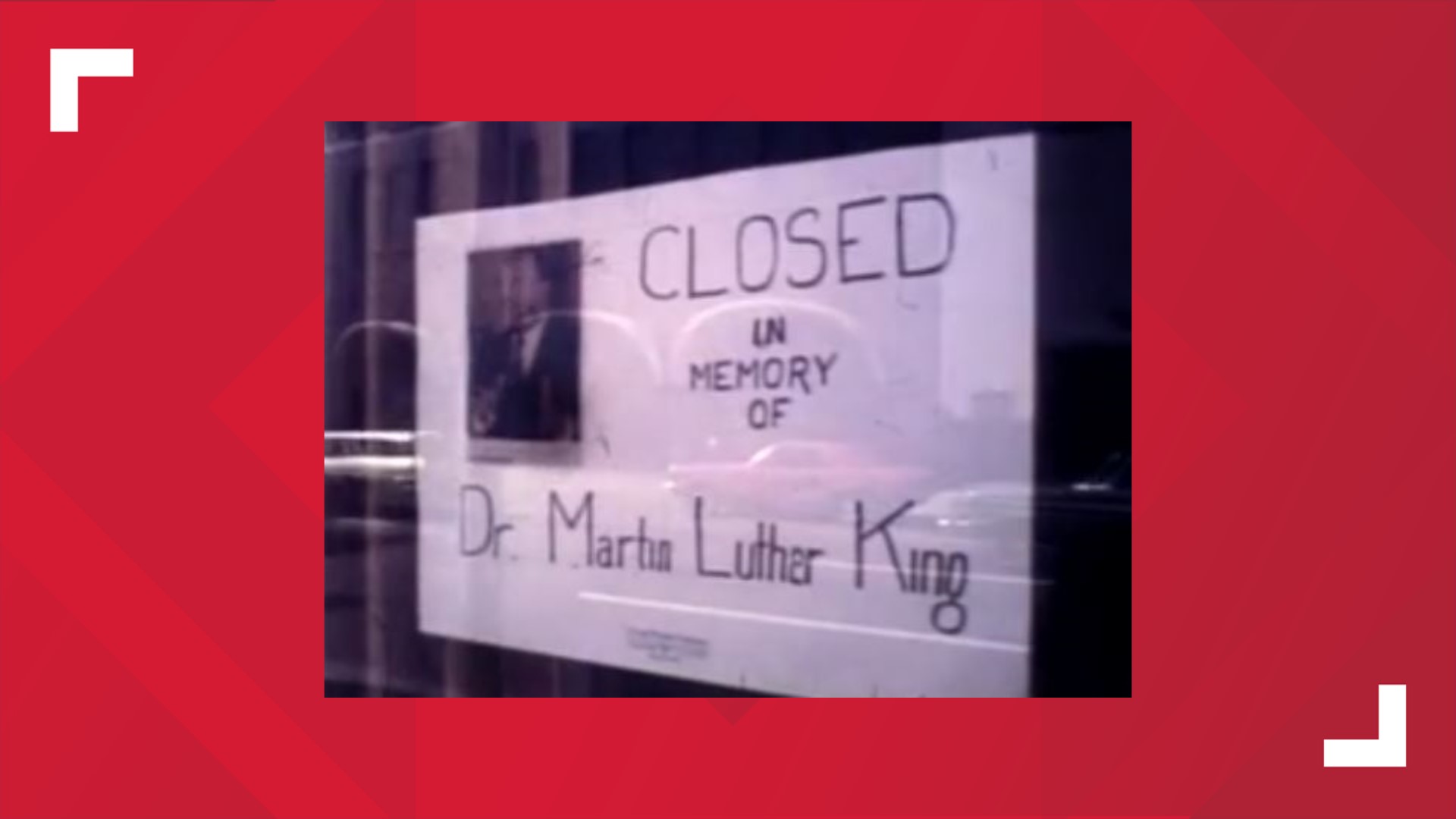ST. LOUIS — This week's Vintage KSDK takes us back to April 4, 1968, and our coverage of the tragic day civil rights leader, the Reverend Martin Luther King, Jr., was assassinated in Memphis, Tennessee.
St. Louis and the country was plunged into grief.
Stores and businesses closed in the days that followed.
Churches held special services.
On April 4, 1968, then-KSD reporter Chris Condon took to the streets to talk with St. Louisans, many of whom were emotional.
"Martin Luther King was shot dead tonight by a white man in Memphis. What is your reaction to that?” Condon asks a man on the street.
“My reaction to this is it's a very pitiful and senseless killing and it's horrible. And that's all I can say, is that if someday we can stop this. That's all I can say sir."
Another said, "I think that we've lost a great leader in the civil rights movement."
And a woman told Condon, "I just heard about it just about 30 minutes ago. I think it's a tragic thing."
Social unrest follows King's death
A wave of social unrest, sometimes called the Holy Week Uprisings, broke out in cities across the country.
Here in St. Louis, both moderate and militant civil rights leaders held meetings to keep the peace and plan a march in King's honor.
Here's former St. Louis Alderman William Clay, Sr., who would be elected to congress just a few months later.
Condon asked, "It's clear you take the militant group at its word that they will cooperate to try to prevent any violence."
"Well, I certainly have to take them at their word that they're going to try to prevent any violence. The hope of all the people in charge of this movement that certainly there will not be any violence,” said Clay.
The following days and weeks were peaceful in St. Louis.
But local civil rights leaders voiced their hope that the concern being shown by white leaders wouldn't end with the period of mourning for Dr. King.
Here are the words from a St. Louis civil rights leader in the days after King’s death:
"After the movement is over, the march is over, we will request some of the pending problems to be solved by every person who here seems to be concerned, because I believe that we all are equally to blame about things like murder of our leaders, things of this nature."

